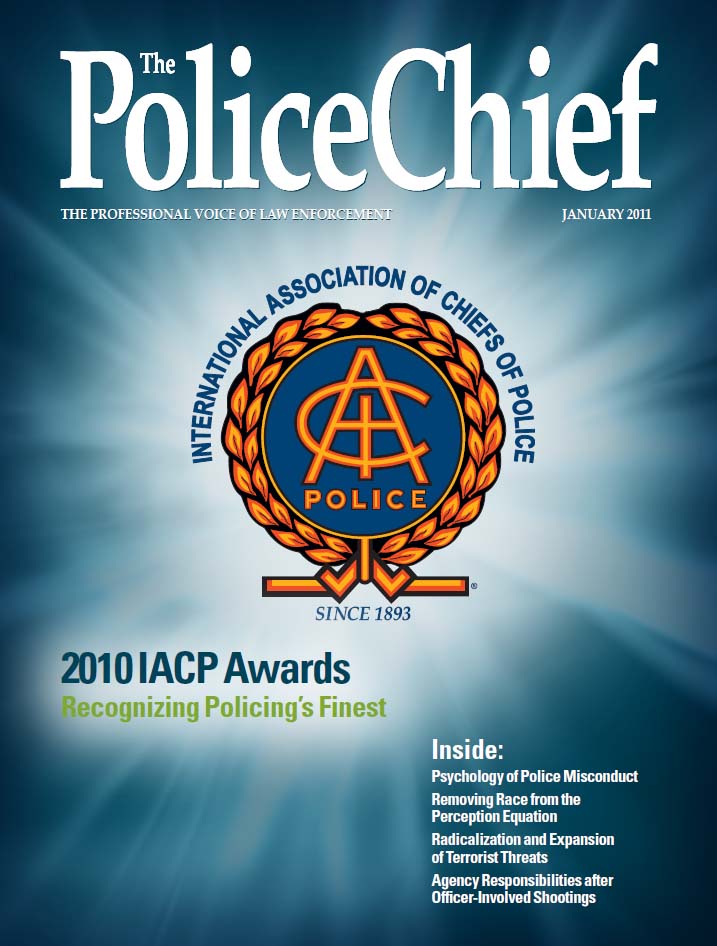
January 2011
This issue discusses ethics and police psychology, in addition to recognizing recipients of the 2010 IACP Awards. Law enforcement is a unique profession, with officers experiencing a host of freedoms not available to the general public. Every police department has the ongoing duty to measure policing perceptions, fashion training curriculums to address those perceptions, and improve its overall policing services.
Articles
-
Psychological Factors after Officer-Involved Shootings: Addressing Officer Needs and Agency Responsibilities
The police use of deadly force is a consequential event for all parties: the officers and their families, the agency, the community, and the suspects and their families and survivors. In light of thes... -
Understanding the Psychology of Police Misconduct
Law enforcement is a unique profession, with officers experiencing a host of freedoms not available to the general public, including the application of deadly force, high-speed driving, and seizing pe... -
Updating Ethics Training-Policing Privacy Series: Taking Race out of the Perception Equation
Policing has always been about differing perceptions. In police research, academicians use the perceptions of citizens, officers, and supervisors to measure the successes, or failures, of an organizat... -
War on Terror or Policing Terrorism? Radicalization and Expansion of the Threats
-
Awards Presented during IACP 2010 in Orlando, Florida
Columns
- President’s Message: Introducing IACP’s Conference Rotation Plan
- Legislative Alert: Mandatory Collective Bargaining Legislation Sidelined Again
- IACP Foundation: Fourth Annual Foundation Fundraiser Flies High in Orlando
- Chief’s Counsel: Federal Collective Bargaining Legislation for State and Municipal Public Safety Personnel
- Technology Talk: Technology Is Playing an Expanding Role in Policing
- Highway Safety Initiatives: Four Emerging Traffic Safety Problems
- Advances & Applications: January 2011
- IACP News: January 2011
- Line of Duty Deaths January 2011
- Product Update: January 2011
- January 2011 Products & Services

